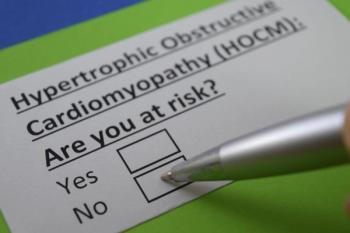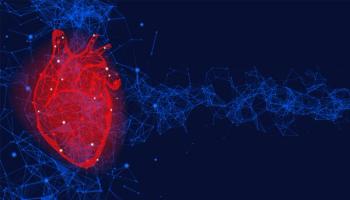
Study Suggests Link Between Social Isolation Amid Pandemic and High Blood Pressure
Increased prevalence of high blood pressure may be among the “collateral damage” from isolation as a result of the COVID-19 pandemic, investigators said.
A recent study reported a link between social isolation as a result of the coronavirus disease 2019 (COVID-19) pandemic and high blood pressure, according to investigators.
Presented virtually at the 46th Argentine Congress of Cardiology (SAC), results of the study showed that “admission to the emergency department during the mandatory social isolation period was linked with a 37% increase in the odds of having high blood pressure, even after taking into account age, gender, month, day and time of consultation, and whether or not the patient arrived by ambulance," said study author Dr. Matías Fosco of Favaloro Foundation University Hospital, Buenos Aires.
Mandatory quarantine commenced on March 20, 2020 in Argentina, which was the location of the study. Like many other countries responding to the pandemic during the initial global surge in March, apart from essential workers, Argentinians were told to stay home unless they needed to buy food or other necessities, or to pick up their prescriptions.
Investigators examined 98.2% of patients who entered the emergency department at Favaloro Foundation University Hospital between March 21, 2019 and June 25, 2020. Because blood pressure is routinely assessed in hospitals, nearly all patients admitted to the emergency department were included in the study.
A total of 12,241 patients of an average age of 57 participated in the study, 1643 of whom were admitted to the emergency room between late March 21 and June 25 of this year. Of those patients, 391, or 23.8%, had high blood pressure, which proved to be significantly higher compared with March-June 2019 (17.5%). January to March of 2020 also reported that 15.4% of patients presented with high blood pressure. Investigators noted that reasons for admission among this population were similar among the study periods.
Dr Fosco hypothesized that high blood pressure in patients amid COVID-19 may have been due to increased psychological tension in response to travel restrictions, police controls, and apprehension in regard to COVID-19 infection. Not only that, but early COVID-19 warnings, which were later proved false and dismissed, suggested that high blood pressure medications could spur adverse effects on COVID-19 outcomes, Fosco explained.
Increased prevalence in blood pressure among emergency department patients may point to a larger issue surrounding heart health. Dr Hector Deschle, scientific program chair of SAC 2020 pointed out that, “this study illustrates the collateral damage generated by isolation. There has been a significant decrease in heart disease consultations, which inevitably leads to avoidable complications. But I would like to emphasize the psychological damage pointed out by the authors, which we perceive daily in consultations and which is expressed as fear, hopelessness, irritability, and difficulty concentrating. This affects interpersonal relationships and physical health. This study puts the spotlight on the concomitant consequences of the outbreak and the restrictions used to struggle against it."
SAC 2020 was held virtually November 19 to 21, 2020.
Reference:
1. Social isolation during COVID-19 pandemic linked with high blood pressure. News Release. European Society of Cardiology; November 19, 2020. Accessed November 30, 2020. https://www.escardio.org/The-ESC/Press-Office/Press-releases/social-isolation-during-covid-19-pandemic-linked-with-high-blood-pressure
Newsletter
Pharmacy practice is always changing. Stay ahead of the curve with the Drug Topics newsletter and get the latest drug information, industry trends, and patient care tips.























